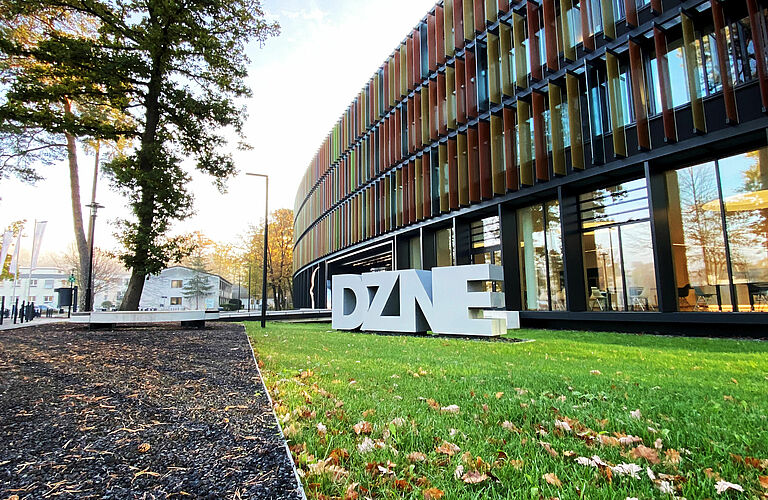Brain research for a healthy life
The age distribution of the population in Germany – and in many other countries – is set to change fundamentally in the coming decades. The number of young individuals is falling, while that of older people is growing. As a result of this “demographic change”, the prevalence of dementia is expected to rise, because the risk of dementia increases with age. In 2023, there were an estimated 1.8 million people in Germany affected by dementia. By 2050, their number could grow to up to 2.7 million1). In 2019, dementia was among the leading causes of death in Germany2).
Widespread diseases
Dementia is a widespread disease. Dealing with it is a challenge for society and a burden for many families, because relatives are usually the ones who care for people with dementia3). The costs are also enormous: In 2020, they amounted to some 83 billion euros for Germany, according to estimates by DZNE, and the trend is rising4). The crux of the problem is that there are currently no therapies that could stop or at least slow down the disease process. This applies not only to the various types of dementia – including Alzheimer’s – but also to other neurodegenerative diseases such as Parkinson’s and ALS. Although all these diseases tend to manifest in late adulthood, research suggests that the course for healthy aging is set many years or even decades before. In fact, the potential of prevention is considerable and far from being fully utilized: According to studies, around 40 percent of dementia cases worldwide could be prevented – through beneficial lifestyle habits and medical interventions that address risk factors5).
Ten sites
In light of this situation, DZNE was founded in 2009 as a member of the Helmholtz Association and the first member of the German Centers for Health Research (DZG). Today, it consists of ten sites – Berlin, Bonn, Dresden, Göttingen, Magdeburg, Munich, Rostock/Greifswald, Tübingen, Ulm and Witten – and pools expertise distributed nationwide within a single research institute. More than 1,200 professionals collaborate to understand the causes of diseases of the nervous system and to find novel approaches for effective prevention, therapy, and patient care. Worldwide, DZNE is one of the largest research institutes dedicated to these topic. It is funded by the German Federal Ministry of Education and Research (BMBF) and by the federal states in which DZNE sites are located**). DZNE is involved in the implementation of the National Dementia Strategy for Germany.
Fading neurons
The common trait of the diseases researched by DZNE is “neurodegeneration”, a term that refers to a progressive decline and loss of neuron. Depending on which area of the nervous system is affected, neurodegeneration can lead to dementia, trigger movement disorders, or massively impair health in other ways. Examples include Alzheimer’s disease, frontotemporal dementia, childhood dementia, Parkinson’s disease, Huntington’s disease, amyotrophic lateral sclerosis (ALS), spinocerebellar ataxia, and age-related macular degeneration.
Transfer to application
Research at DZNE aims at preventing neurodegeneration and significantly improve the quality of life of affected individuals. Thus, DZNE dedicates its efforts towards all aspects of neurodegenerative diseases – from molecular mechanisms to health care and patient care. In order to cover this wide range of topics, DZNE pursues an interdisciplinary scientific strategy that includes various interlinked areas of research: DZNE scientists work together across disciplines and sites, so that new findings can be rapidly transferred into practical application. Within this “translational” approach, DZNE collaborates with universities, university hospitals, research institutes and research-driven companies – both in Germany and worldwide.
1) Dementia in Europe Yearbook 2019, Alzheimer Europe (2020) / Die Häufigkeit von Demenzerkrankungen, Deutsche Alzheimer Gesellschaft (2024)
2) Krebs war 2019 für ein Viertel aller Todesfälle in Deutschland verantwortlich, Statistisches Bundesamt (2021)
3) Demenz-Report, Berlin-Institut für Bevölkerung und Entwicklung (2011) / Deutsche Alzheimer Gesellschaft
4) Ökonomische und gesellschaftliche Herausforderungen der Demenz in Deutschland – Eine Metaanalyse, Bernhard Michalowsky et al., Bundesgesundheitsblatt (2019)
5) Dementia prevention, intervention, and care: 2020 report of the Lancet Commission (2020)

** The Free State of Saxony requests the disclosure of the following information: “This measure is cofinanced by tax revenue based on the budget passed by the Saxon Parliament.”

